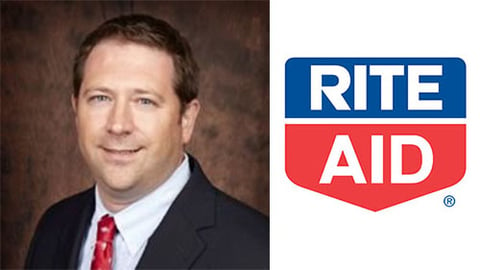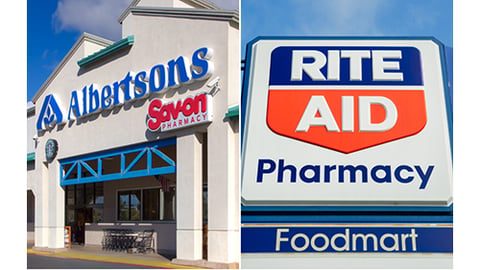Rite Aid Vows to Improve Chemical Management and Product Safety
Rite Aid Corp. has revealed expanded commitments to reduce toxic chemicals in its products as part of the drug store chain’s RxEvolution strategy.
After an evaluation of current practices, Rite Aid has identified several new areas for improvement in its updated chemical policy, committing to the following actions:
• Putting out a food-contact materials restricted-substance list and requiring own-brand suppliers to certify that all packaging and packaging components sold to Rite Aid comply with the requirements of federal and state packaging laws, as well as with the company’s corporate restricted list for food-contact packaging materials.
• Requiring suppliers to certify that restricted chemicals weren’t intentionally added to their packaging, and don’t exceed restriction limits noted in the restricted substance list.
• Increasing product ingredient transparency by requiring suppliers to provide further disclosure regarding generic ingredients like “fragrance” by Dec. 2023.
• Boosting consumer transparency efforts in regard to desired product attributes, including organic, non-GMO, cruelty-free and paraben-free, making it easier for customers to find such products.
“Rite Aid’s RxEvolution is about promoting whole health, and we’re dedicated to ensuring that our merchandise is aligned to that goal,” said Erik Keptner, the company’s chief marketing and merchandising officer. “We’re proud of our work to offer cleaner, more sustainable products. Our expanded commitment is another step forward in our journey to offer our customers product choices they can feel great about.”
In 2016, Rite Aid executed a formal chemical management policy and committed to removing eight chemicals of concern — triclosan, propyl paraben, formaldehyde, dibutyl phthalate, toluene, diethyl phthalate, butyl paraben and nonylphenol ethoxylates — from its own-brand formulated products by the end of 2020. The company has achieved 98% compliance toward this commitment and is actively collaborating with outstanding supplier partners on reformulating or transitioning remaining items.
Beyond its commitment to remove those eight chemicals, Rite Aid continues to screen all formulated products against its full restricted-substance list containing 69 chemicals of concern. The list, which now restricts such chemicals of high concern as per- and polyfluoroalkyl substances (PFAS), ortho-phthalates, bisphenols, perchlorate and benzophenone, was expanded to exceed regulatory requirements and include additional chemicals that the U.S. retail sector has prioritized for elimination.
Further, the company said that it “plans to expand its restricted-substance list to include toxic chemicals in beauty and personal care products marketed to women of color.”
Along with its chemical policy, the company’s continuing merchandise transformation focuses on a broader wider assortment of products that contain cleaner ingredients and are eco-friendly. As part of its screening, tracking and monitoring protocol, Rite Aid has moved from survey-based assessments of restricted-substance list compliance to automated screening via the WERCSmart platform, to which suppliers must report all ingredients in their formulated products. Rite Aid will use these reports to assess its progress toward meeting chemical management and product safety goals.
As part of these efforts, Rite Aid has continued to work with the Mind the Store campaign, which encourages retailers to replace chemicals of concern with safer alternatives.
“We are very pleased to see that Rite Aid is taking concrete actions to safeguard its customers and communities from toxic chemicals,” said Mike Schade, campaign director of Washington, D.C.-based Mind the Store. “Today’s announcement shows excellent progress; setting higher bars on chemical management is a growing sustainability trend among retailers. In our work with Rite Aid over the last year, we have been impressed by the significant progress made despite the global pandemic.”
Operating more than 2,400 retail pharmacy locations across 17 states, Camp Hill, Pennsylvania-based Rite Aid is No. 18 on The PG 100, Progressive Grocer’s list of the top food retailers in North America.











